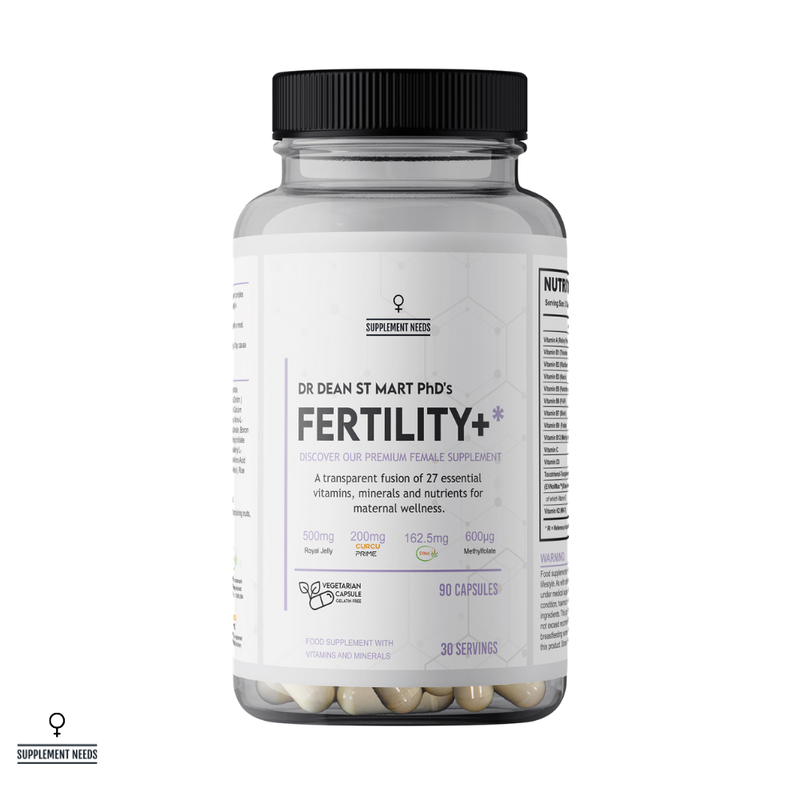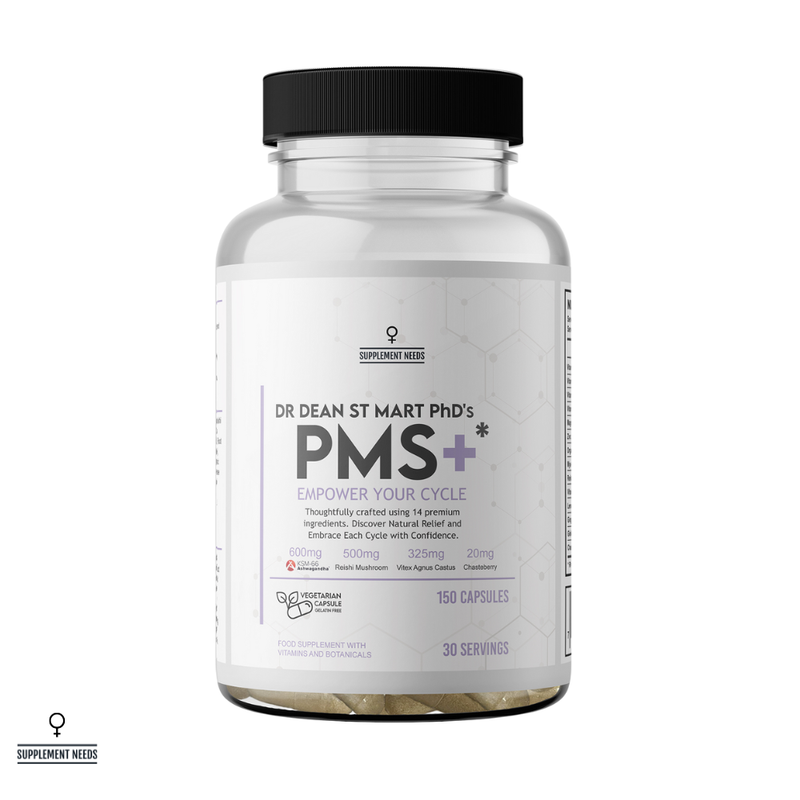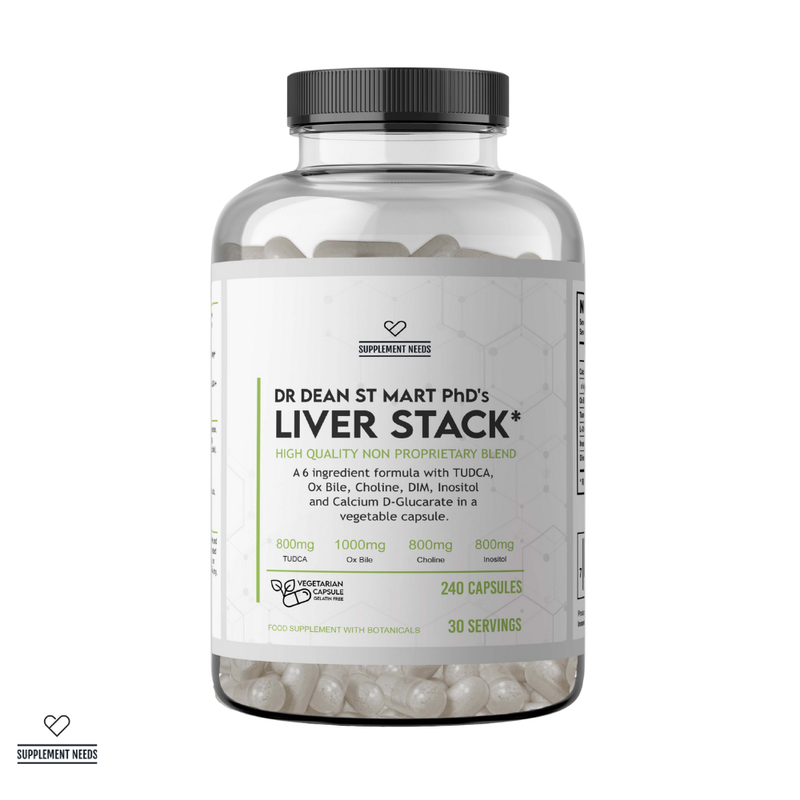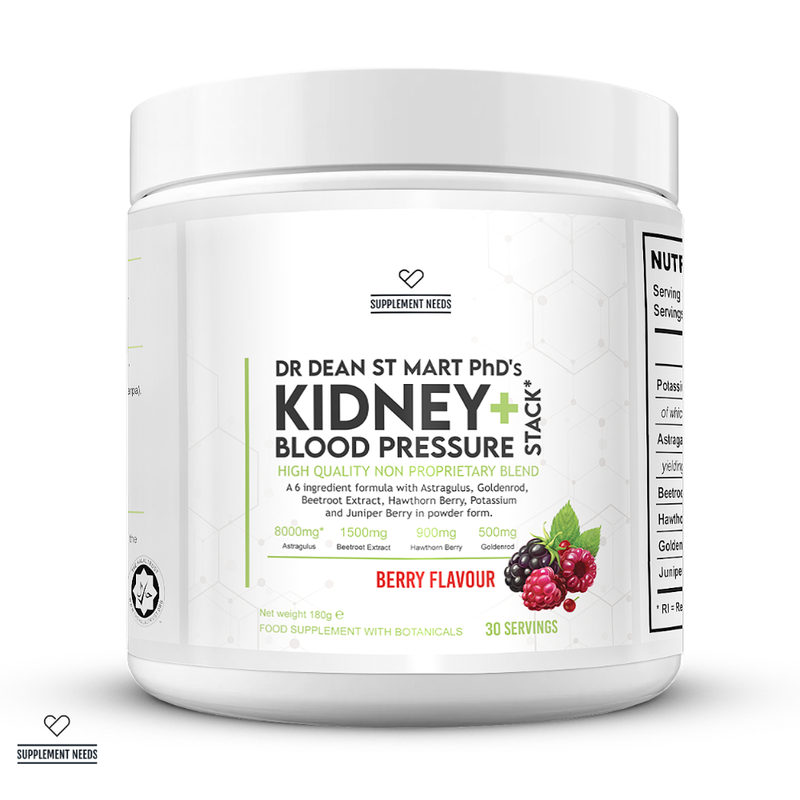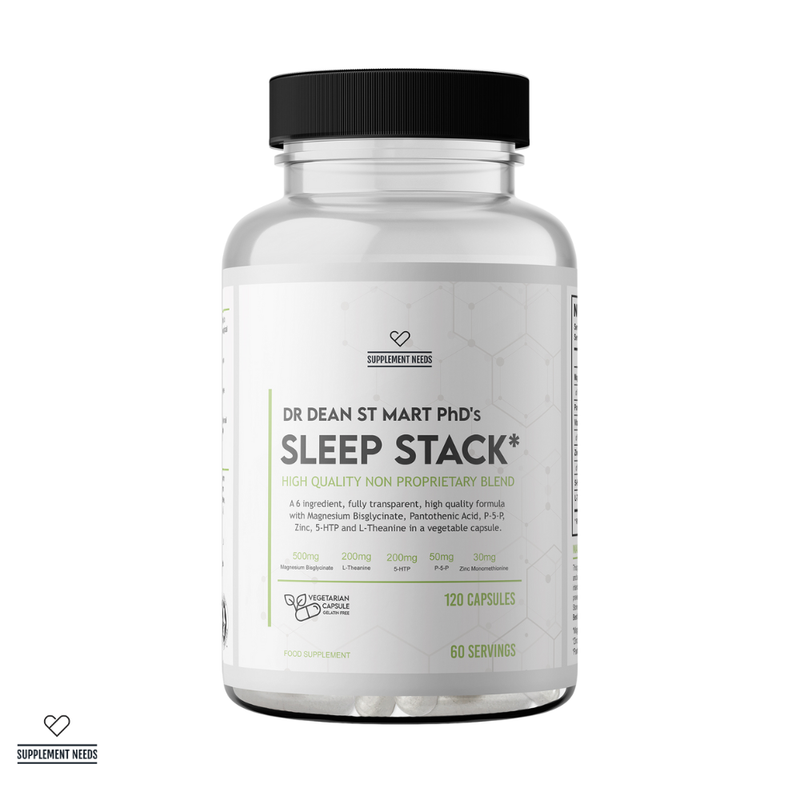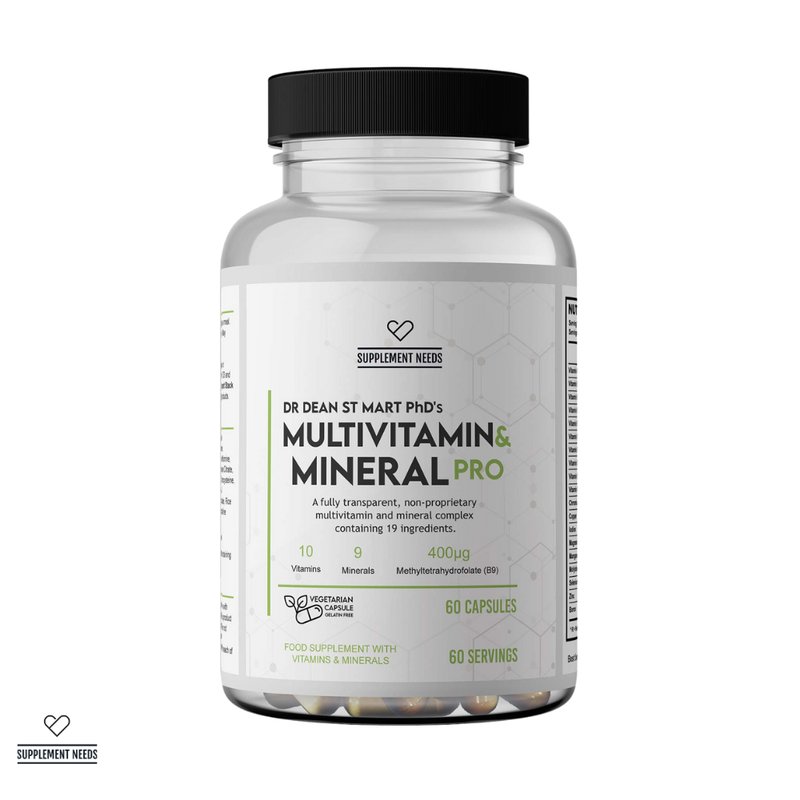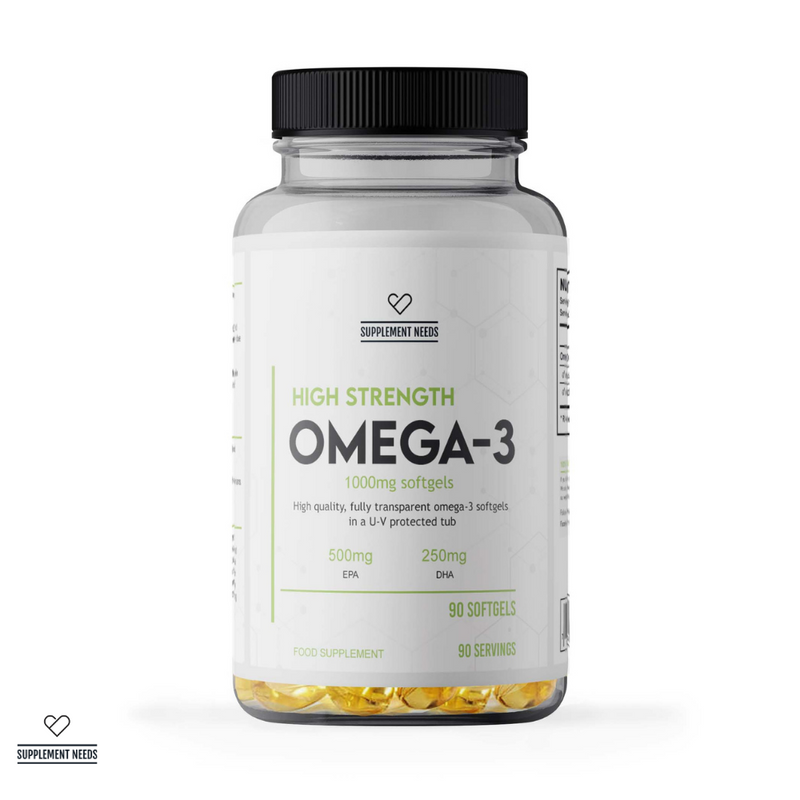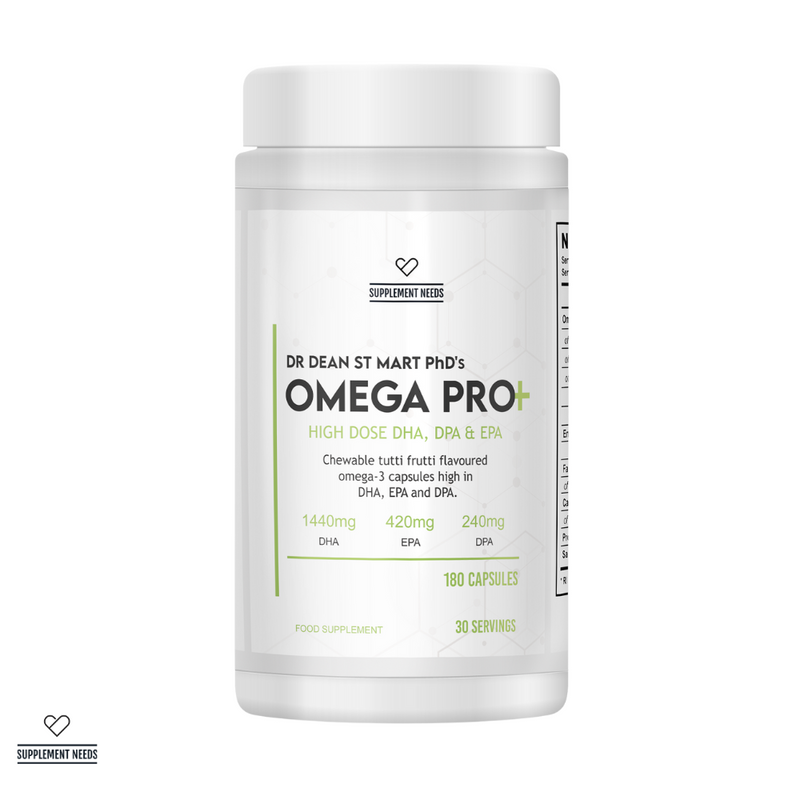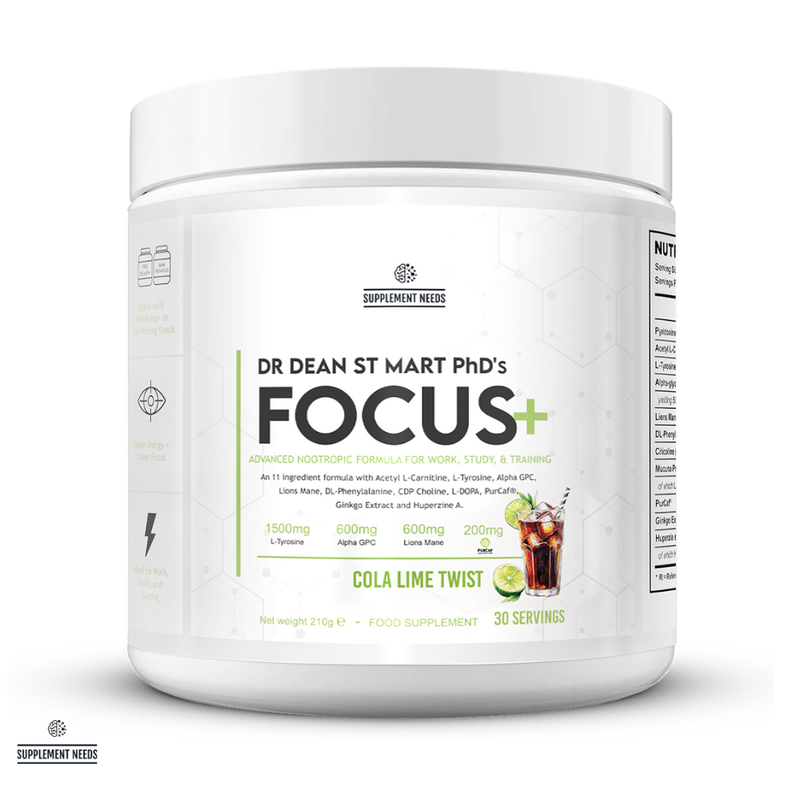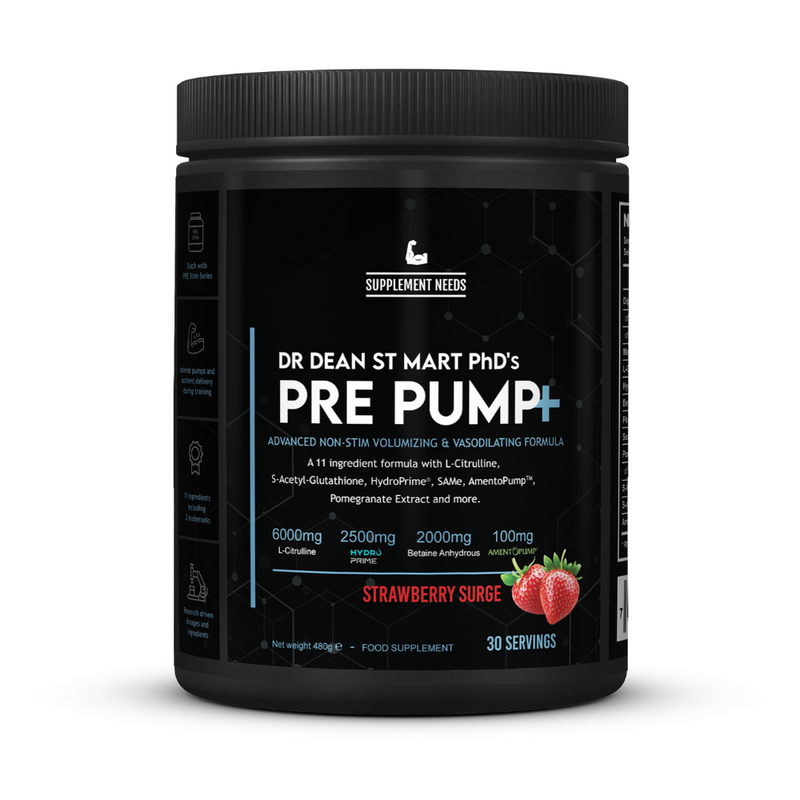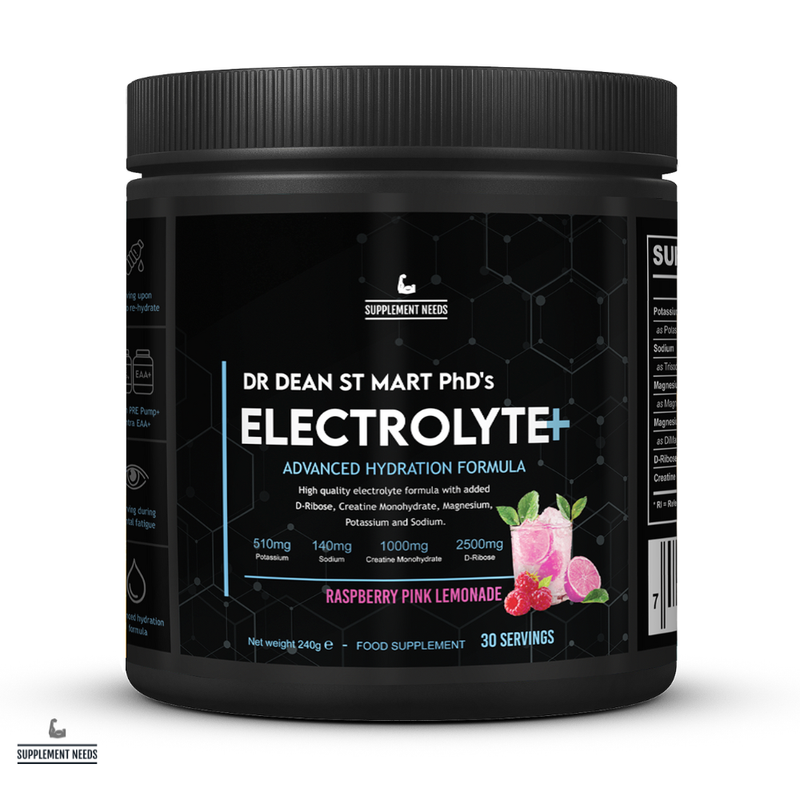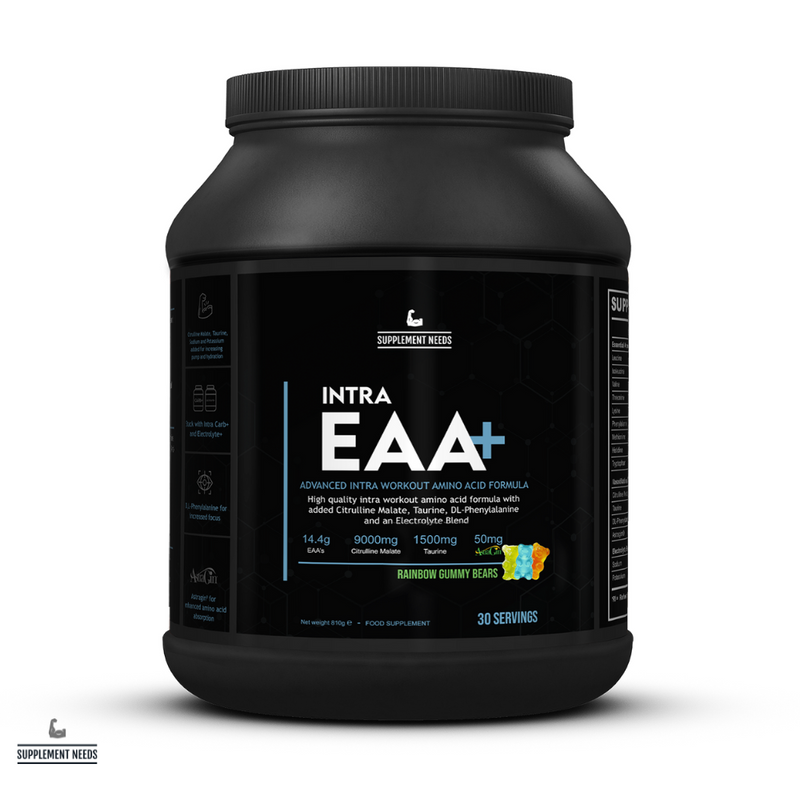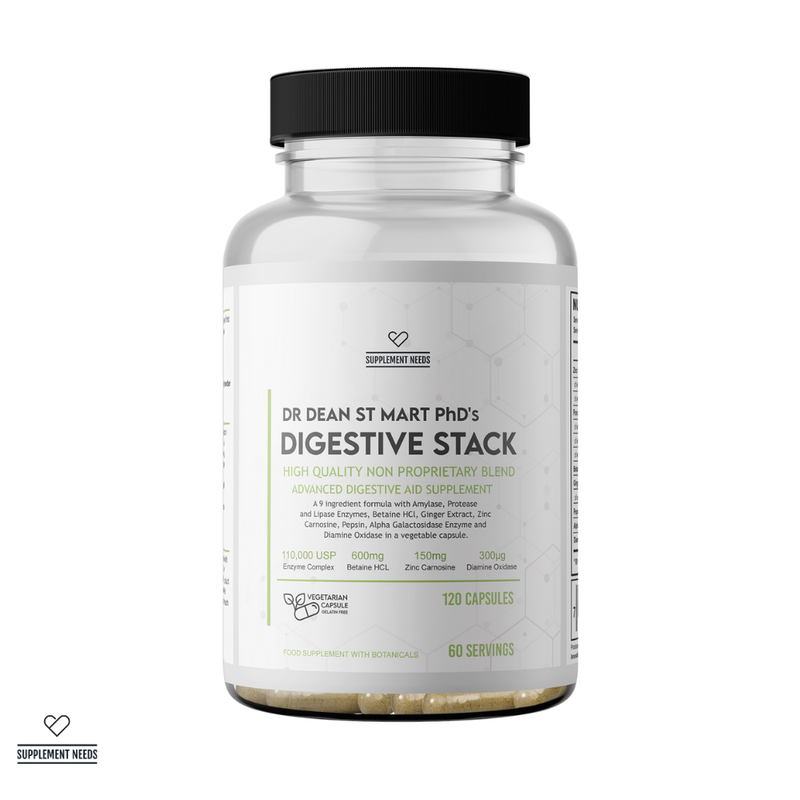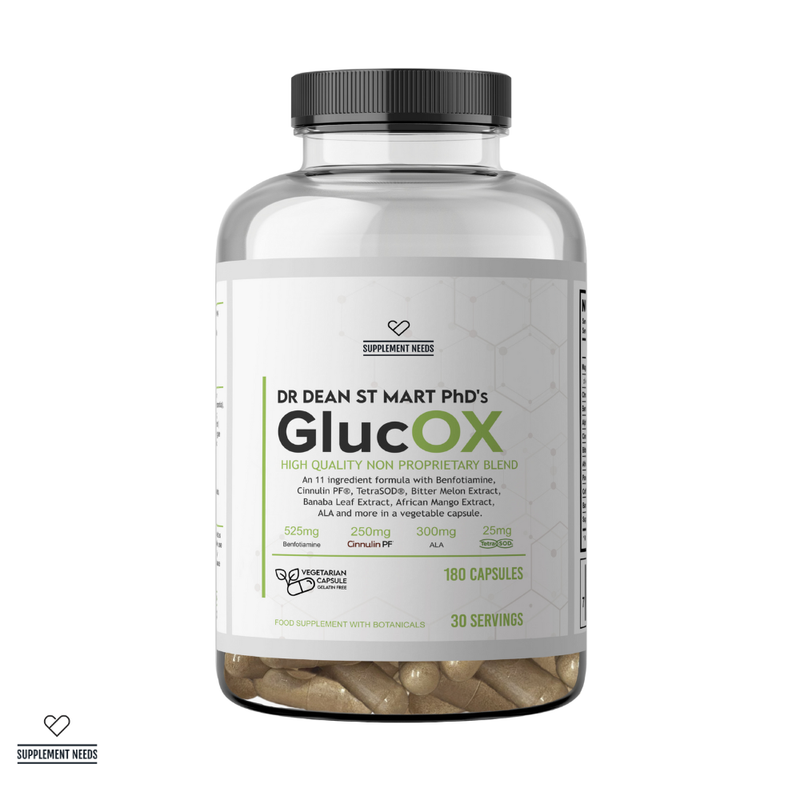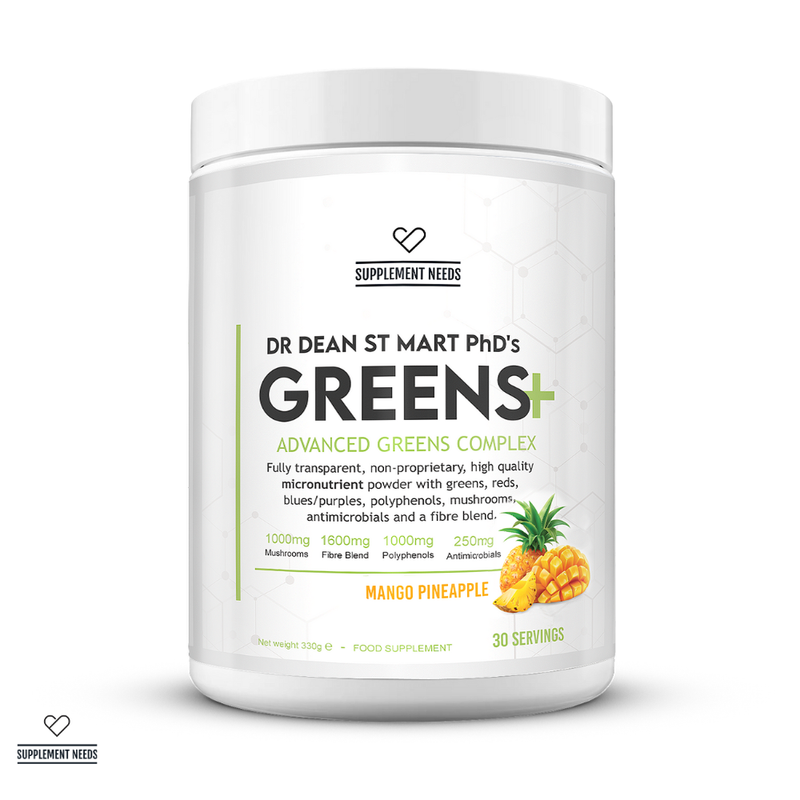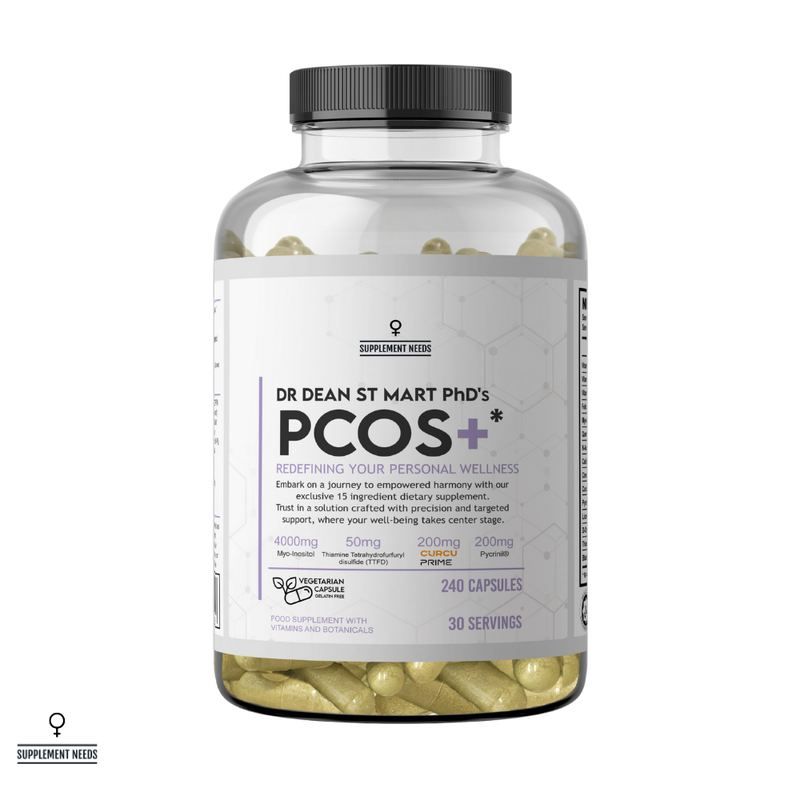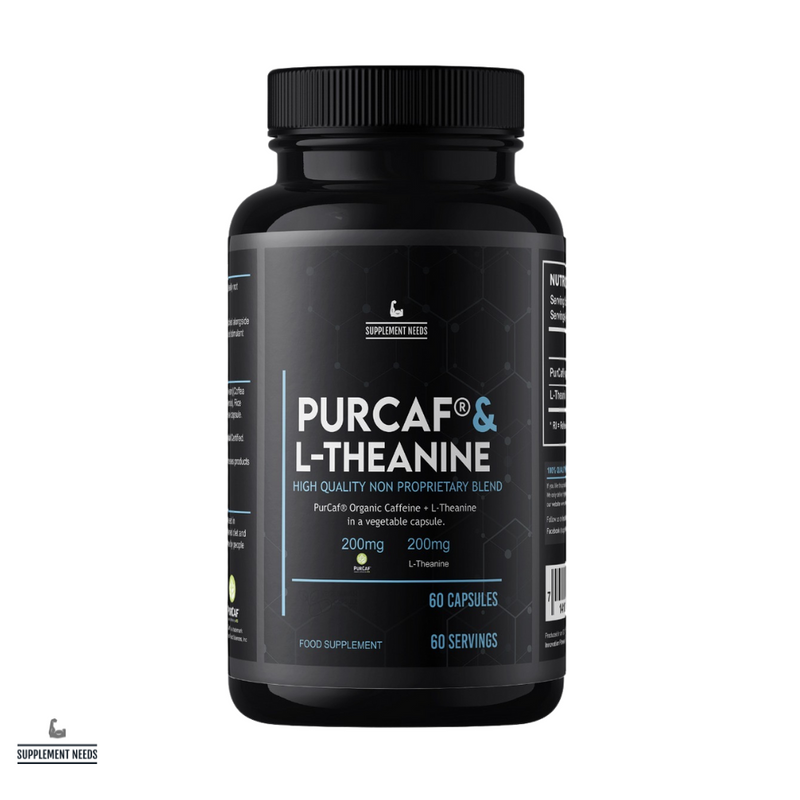Ashwagandha. If you’ve even a cursory interest in supplementation, then you may well have heard of it. But, what exactly is it? What does it do? Is it worthwhile adding to your own personal supplementation regime? Find the answers to these questions and more in this latest guide from the Supplement Needs team…
What is Ashwagandha?
Scan the shelves of your local health food store, or browse your favourite online supplement store, and you’re likely to encounter jars of Ashwagandha capsules.
But, what exactly is Ashwagandha?
Put simply, Ashwagandha is derived from an evergreen shrub - which has the binomial name Withania Somnifera - which grows throughout India, areas of the Middle East, and certain regions of Africa.
Also known as ‘winter cherry’ Withania Somnifera grows to approximately 30-inches tall and features dull-green, elliptically-shaped leaves which grow to about 5-inches in length.
Okay, enough of the horticultural lesson. Let’s move on to etymology (the study of the origin of words).
As we just saw, the second part of Withania Somnifera’s binomial name is Somnifera. This is Latin for ‘sleep-inducing’1 - which should give you a clue to one of the many uses of Ashwagandha.
Aside from the taxonomic binomial name of Withania Somnifera, the term Ashwagandha itself is derived from two Sanskrit words, ‘ashva’ which means ‘horse’, and ‘gandha’ which means ‘smell’.
It is believed that Ashwagandha acquired its name due to the strong-horse-like odour produced by the plant’s root. It has also been suggested that Ashwagandha acquired its name as it gave its users the ‘power of a horse’2.
The fact that Ashwagandha’s name is ultimately derived from Sanskrit should give you an idea of how long this plant has been valued and used by humans.
Historically, Ashwagandha would have been prepared as a ‘churna’ - a type of finely sieved powder.
In order to obtain Ashwagandha, the root of Withania Somnifera would first be thoroughly dried and ground into a fine powder. It would then be ‘steeped’ in milk - meaning that the powder would be left to thoroughly soak in milk to create a tonic that could be consumed orally. As a result, forms of Ashwagandha prepared in this traditional way are not suitable for vegans.
Many of today’s forms of Ashwagandha are extracts meaning the Withania Somnifera root is subjected to liquid/solid separation. This involves placing the root within a solvent such as water. The next step sees the root’s compounds of interest solubilised and contained within the solvent/water. The solvent/water is then eliminated (typically by spraying it using an atomiser or spray nozzle through heated air). The result is a form of Ashwagandha that is vegan friendly.
A note on terminology
At this point, we want to make an important distinction between the various terms you’ll see when reading about Ashwagandha.
The following phrases are often used interchangeably, but they do have subtlety different meanings:
- Ashwagandha - this typically refers to the finished preparation/extract. It’s important to note, however, that Ashwagandha can be used to refer to a range of different extracts (these being the various combinations of compounds extracted from Withania Somnifera). As you’ll see later in this article, not all extracts are created equal!
- Withania Somnifera - this is the plant from which Ashwagandha is extracted. For this reason, you’ll often see people talking about Withania Somnifera or just W somnifera when they are talking about Ashwagandha.
With that out of the way, let’s continue with the story of Ashwagandha.
A (very) brief history of Ashwagandha
Ashwagandha has been used for thousands of years - predominantly in Ayurveda - a traditional form of alternative medicine that was practised throughout ancient Indian society3.
Ayurveda was especially practised in India and Nepal, with around 80% of the population using some form of Ayurveda4.
In fact, scholars5 have traced the use of Ayurveda back to 6000 BC…
Under the Indian Ayurvedic system of medicine, Ashwagandha was primarily used as a Rasayana (tonic). Classical uses of Ashwagandha included:
- Treating rheumatism and insomnia6.
- Applying to joints to reduce inflammation (as a paste when Ashwagandha roots were crushed with water)7.
- Applying to carbuncles, ulcers and painful swellings8.
Think of Ashwagandha as being the ancient world’s wonder supplement!
Fast-forward to today, and our better understanding of phytochemistry (the study of chemicals derived from plants), means that we have a far clearer picture of how Ashwagandha can be used to beneficially support the body.
Put another way, whereas in the past Ashwagandha use was based on a degree of guesswork and qualitative observation, today Ashwagandha use is underpinned by a much more solid body of scientific evidence (more on that shortly…).
With a better understanding of its characteristics and benefits Ashwagandha has become an exceptionally popular supplement over the past half decade. Google Trends data shows a massive increase in searches since early 2020:

We’ll explore some of the potential reasons why Ashwagandha has soared in value and popularity later in this article.
What’s so special about Ashwagandha?
As we’ve seen, ancient Indian society certainly valued Ashwagandha. But, what makes it so special (and popular) today?
The answer lies in a single word which plagues the modern West - stress.
Ashwagandha is an adaptogen.
And?
Well, studies have indicated that adaptogens can contribute towards neuroprotective, anti-fatigue, antidepressant, anxiolytic, nootropic, and central nervous system (CNS) stimulating activity9.
Put in more simple terms, because Ashwagandha is a type of adaptogen, it may help the body combat stress. Or as one study succinctly puts it10, adaptogens can ‘non-specifically enhance the resistance of the human body under a wide range of external circumstances’.
Having said that, there are multiple adaptogens available. Popular examples include Siberian Ginseng, Rhodiola Rhodiola , and Schisandra Chinensis.
So, why is Ashwagandha so popular given there are so many different adaptogens to choose from?
The answer lies in the term withanolides.
Withanolides are the primary bioactive compounds of Withania Somnifera - to date, more than 40 withanolides have been identified and isolated from Withania Somnifera. The first of these was Withaferin A, which was isolated in 196511.
Withanolides are a group of steroidal lactones which have a range of beneficial biological properties. Studies12 have shown that steroidal lactones such as Withaferin A have biological properties including immunomodulatory, anti-inflammatory, antistress, and anticancer activities.
To put it more simply, because Ashwagandha has many bioactive compounds, it is used in the prevention and treatment of many diseases, including arthritis, impotence, amnesia, anxiety, cancer, neurodegenerative and cardiovascular diseases, and more13.
So, whilst Ashwagandha - as an adaptogen - may help the body with stress, its withanolides can also potentially provide many other benefits.
Aside from withanolides, Withania Somnifera also contains a series of alkaloids (including isopelletierine, anaferine, anahygrine etc). Alkaloids are therapeutically recognised as being anaesthetic, cardioprotective, and anti-inflammatory agents14.
Note - the term adaptogen refers to substances that can ‘non-specifically enhance the human body’. In other words, adaptogen defines substances in terms of how they affect the body, rather than the composition of the substance itself. It’s also important to note that although the term ‘adaptogen’ is traditionally used to refer to plant-based compounds, today synthetic adaptogens are also available such as Bromantane, and Bemethyl.
What are the benefits of Ashwagandha?
Thus far, we’ve delved into the history of Ashwagandha and examined what makes it such a special supplement. But, what are its benefits? And, are they backed by science? Let’s take a look…
May reduce anxiety and stress
Ashwagandha is arguably most well known as being a supplement that may help the body better respond to stress and anxiety.
Is that really the case?
Studies suggest so.
An eight week, prospective, randomised, double-blind, placebo-controlled study investigated the stress-relieving effect of Ashwagandha root extract. The conclusion of the study was that Ashwagandha root aqueous extract is beneficial in reducing stress and anxiety15.
That isn’t the only study to suggest that Ashwagandha may have a positive impact upon stress and anxiety. Another study16 found that Ashwagandha may relieve stress via its moderating effect on the body’s hypothalamus-pituitary-adrenal axis (think of this as the system within your body that regulates your response to stress).
In short, studies suggest that Ashwagandha - as an adaptogen - may help the body better cope with stress and anxiety.
May reduce inflammation
As you’ll have read earlier, the ancient practitioners of Ayurveda used Ashwagandha to reduce inflammation. Does modern science back them up?
Well, although studies on Ashwagandha’s effects on inflammation are limited, there are some studies which suggest it may have a positive effect.
For example, a study conducted in 202117 saw researchers give people who had contracted COVID-19 an Ayurvedic drug containing 0.5 grams of Ashwagandha (as well as 1 gram of giloy ghanvati, 2 grams of swasari ras, and 0.5 grams of tulsi ghanvati).
Participants in the study took the Ayurvedic drug twice a day for seven days. The result was that the participant’s CRP, IL-6, and TNF-α inflammatory markers were reduced - when compared with a placebo. (Note that the three most commonly used inflammatory markers are C-reactive protein (CRP), erythrocyte sedimentation rate (ESR), and plasma viscosity (PV)18).
Furthermore, an animal study focused on Withaferin A19 - one of the primary bioactive compounds of Ashwagandha - suggests that Withaferin A may help reduce levels of inflammatory proteins.
To sum up, limited studies suggest that Ashwagandha may have a beneficial effect on inflammation.
May improve memory and brain function
Another benefit that has been associated with Ashwagandha is that it may improve brain function and memory.
One systematic review20 of five clinical studies on ‘the clinical use of Ashwagandha to ameliorate cognitive dysfunction’ found that ‘there is some early clinical evidence, in the form of randomised, placebo-controlled, double-blind trials, to support the cognitive benefits of Withania Somnifera supplementation’.
This study found that Ashwagandha supplementation may be particularly beneficial for older adults with mild cognitive impairment. As per the study, ‘In most instances, W. somnifera extract improved performance on cognitive tasks, executive function, attention, and reaction time’.
A further, albeit small, study21 found that taking two doses of 300 mg of Ashwagandha root extract each day led to sizable improvements in memory and focus (over the course of eight weeks of supplementation). The study was a randomised, double-blind, placebo-controlled study of 50 people.
Yet another study22 - that was carried out in a randomised, double-blind, placebo-controlled, crossover, and counterbalanced manner - found a positive effect for Ashwagandha on cognitive function.
To quote the study’s conclusion verbatim, ‘Acute supplementation with 400 mg of proprietary Ashwagandha root and leaves extract improved selected measures of executive function. Acute ingestion of Ashwagandha helped sustain attention and increase short-term/working memory in healthy young adults’.
Consuming Ashwagandha root extract on a daily basis may improve cognitive function, however more studies are needed to confirm this.
May improve sleep
Given that Somnifera is Latin for ‘sleep-inducing’, it’s no surprise to find that Ashwagandha has traditionally been thought of as a sleep aid.
That may have historically been the case, but what does modern science say?
One study23 of 50 adults between the ages of 65 and 80 found that taking 600 mg of Ashwagandha root per day (over 12 weeks) significantly improved sleep quality. A further finding of the study was that participants felt improved mental alertness upon waking (compared to the placebo treatment).
A systematic review and meta analysis24 of the literature on Ashwagandha further backs up the suggestion that Ashwagandha may contribute to improved sleep. In this review and analysis, researchers accounted for randomised controlled trials that ‘examined the effect of Ashwagandha extract versus placebo on sleep in human participants 18 years old and above’. They concluded that Ashwagandha has a small but significant positive effect on overall sleep quality. This review and analysis also concluded that study participants felt more alert upon waking.
Overall, Ashwagandha may contribute towards improved sleep, but as an adaptogen, it may have stimulating properties that must be considered for bedtime use.
May help fertility and vitality in men
The idea that Ashwagandha is associated with improved fertility and vitality is one that has been around since the earliest days of Ashwagandha use. But, is it an idea that’s founded on evidence?
The literature suggests that Ashwagandha may well contribute towards improved fertility and vitality. Let’s take a look at several studies…
The first study25 we looked at focused on vitality. Studying 43 overweight males between the ages of 40 and 70 - who were experiencing mild fatigue - the study saw the participants given either a placebo or an Ashwagandha extract every day for eight weeks.
The results of the study found that Ashwagandha intake was ‘associated with an 18% greater increase in DHEA-S (p = .005) made in the adrenal gland, and 14.7% greater increase in testosterone (p =0.10)’ compared to the placebo. (DHEA-S stands for dehydroepiandrosterone sulphate and plays an important role in making testosterone in the adrenal gland).
There are also studies that support the contention that Ashwagandha contributes to male fertility. Perhaps most notable is a systematic review and meta-analysis26 of four clinical trials. This review and analysis found that Ashwagandha intake could be potentially correlated with increased sperm concentration, semen volume, and sperm mobility in males with low sperm counts.
It’s important to note that the study just mentioned analysed only four clinical trials - as the authors of the study noted, ‘Additional RCTs of high quality with a larger sample size are warranted to further strengthen clinical use of W. somnifera in treating male factor infertility’.
Evidence to-date suggests that Ashwagandha may contribute towards improved vitality and fertility in men, however further studies are needed. It’s important to note, however, that the testosterone increase provided by Ashwagandha comes from the adrenal gland conversion as opposed to the testicle.
May benefit athletic performance
If you’re reading this, and you’re an avid weekend warrior or bodybuilder, then you’re probably keen to know if Ashwagandha could improve your performance in the gym or out on the track.
Like many of the benefits associated with Ashwagandha, there are no hard and definitive answers. However, there are a number of studies that do suggest a potential link between Ashwagandha supplementation and improved athletic performance.
Take for example a systematic review and meta-analysis of five studies27. This analysis found that Ashwagandha supplementation contributes towards enhanced maximum oxygen consumption (VO₂ max - this being the maximum possible amount of oxygen a person can use during exercise, measuring heart and lung fitness).
Of particular interest to bodybuilders will be another study28 that looked at the effect of Ashwagandha supplementation on muscle strength and recovery. Taking the form of a randomised control trial, the study involved 57 young male participants.
Of these, 29 took 600 mg of Ashwagandha per day. The other 28 participants took placebos. Both sets of participants partook in resistance training for eight weeks. By the end of the study, the participants who had been taking Ashwagandha demonstrated significantly greater gains in muscle strength and size compared to the placebo group.
Ashwagandha may contribute towards improved physical performance and strength in athletes and healthy adults. Many athletes use Ashwagandha on the premise that it induces a parasympathetic nervous system state which contributes to enhanced digestion. This, in turn, equals better recovery and sleep.
What is the best type of Ashwagandha?
Having read the above, you may be keen on giving Ashwagandha a go yourself. However, as you’ll discover once you start Googling, that there are literally thousands of different Ashwagandha supplements on the market.
So, your next question is naturally going to be, what is the best type of Ashwagandha?
Here at Supplement Needs our answer is simple - Ashwagandha extract KSM-66.
Our answer isn’t merely a subjective one, or a case of personal preference. No, our answer is based on the point that Ashwagandha KSM-66 has some of the most extensive research studies and clinical trials associated with it.
KSM-66 has been subjected to 24 double-blind, randomised placebo controlled trials and has been shown to:
- Reduce stress, stress-related food cravings and enhance quality of sleep.
- Enhance memory and cognition.
- Increase endurance, strength, and immune function.
- Improve sexual function in both men and women.
Furthermore, KSM-66 uses only the root of Withania Somnifera. The root of Withania Somnifera is the part of the plant that provides the majority of adaptogenic benefits. It’s also important to note that the majority of the scientific literature, clinical trials and studies have focused on compounds derived from the root - not the leaves.
Cheaper forms of Ashwagandha are known to use both the leaves and the roots - resulting in a supplement which is less efficacious (and with less of a body of evidence behind it).
It’s for these reasons that Supplement Needs’ Ashwagandha Organic Vegan KSM-66 product uses KSM-66 Ashwagandha that is non-milk derived. We want to provide you with an Ashwagandha supplement that provides the highest-concentration full-spectrum extract available today, without compromising personal ethics.
What to look for in an Ashwagandha supplement
Okay, it’s buying time. However, before you part with your hard-earned money, make sure you’re buying only the very best Ashwagandha supplement.
To help you buy only the very best Ashwagandha, Supplement Needs has created a tick list:
Check the extract!
As we mentioned above, the most important thing you need to do when buying Ashwagandha is to ensure it is based on a high-quality extract - KSM-66.
Check the level of withanolides
As withanolides are responsible for many of the purported benefits of Ashwagandha, you should ensure that your chosen supplement contains an appropriate dose. The Supplement Needs Ashwagandha Organic Vegan KSM-66 supplement contains 30 mg per single capsule serving of withanolides.
Bioavailability
The best Ashwagandha supplements contain ingredients that assist with biological availability. The Supplement Needs Ashwagandha Organic Vegan KSM-66 supplement contains 2.5mg per single capsule serving of BioPerine. This is a regulated black pepper extract which assists with bodily absorption.
Safe and quality manufacture
Ensure that any Ashwagandha supplement you select is manufactured in line with Good Manufacturing Practice (GMP). The Good Manufacturing Practice sets out the best practices and minimum standards that manufacturers should follow when manufacturing supplements.
Likewise, look for quality standards such as ISO 22000:2018 - this is an international standard which allows manufacturers to identify, monitor, reduce and prevent hazards at any stage of the production process.
Supplement Needs’ Ashwagandha Organic Vegan KSM-66 supplement is manufactured in-line with both GMP and ISO 22000:2018 standards.
R&D credentials
If you’re going to be taking a supplement on a daily basis, then you need to know it’s been developed by a knowledgeable, well-credential brand.
Here at Supplement Needs, our Ashwagandha supplement has been developed by Dr. Dean St Mart PhD. In addition to being Supplement Needs’ Product Manager and Formulator, Dean holds a double-first honours degree in chemistry and pharmaceutical chemistry as well as a PhD in synthetic organic chemistry and fluorescence spectroscopy.
You can be assured that Supplement Needs’ Ashwagandha supplement has been developed by the very best.
Want to buy the best Ashwagandha supplement? Then check this out…
If you want to buy the very best Ashwagandha supplement for your body, then buy Supplement Needs’ Ashwagandha Organic Vegan KSM-66 supplement today.
It’s everything you should look for in an Ashwagandha supplement. And, at only 29 pence per serving, it offers both quality and affordability in a single efficacious package.
Shop the Supplement Needs Ashwagandha Organic Vegan KSM-66 now
Disclaimer
The information on this website should not be used as a substitute for professional medical advice or care. If you have questions about your health, please contact your doctor.
References
1. Stearn, W. T. (1995). Botanical Latin: History, Grammar, Syntax, Terminology and Vocabulary. (4th ed.). Timber Press. Available at: https://archive.org/details/botanicallatin00will (Accessed on 26th September 2023).
2. Narendra Singh, Mohit Bhalla, Prashanti de Jager, Marilena Gilca. (2011). An Overview on Ashwagandha: A Rasayana (Rejuvenator) of Ayurveda [online}. Available at: https://www.ncbi.nlm.nih.gov/pmc/articles/PMC3252722/#R20 (Accessed on 27th September 2023).
3. Neeraj Tandon, Satyapal Singh Yadav. (2020). Safety and clinical effectiveness of Withania Somnifera (Linn.) Dunal root in human ailments. Available at: https://pubmed.ncbi.nlm.nih.gov/32201301/ (Accessed on 26th September 2023).
4. Zulfeequar Alam. (2008). Herbal Medicines. New Delhi, India: A.P.H. Publishing.
5. Charak Samhita 6000 BC, author. Charaka translation into English: Translator: Shree Gulabkunverba Ayurvedic Society. Jamnagar, India: 1949.
6. GS Sharma. Ashwagandharishta - Rastantra Sar Evam Sidhyaprayog Sangrah - Krishna-Gopal Ayurveda Bhawan (Dharmarth Trust) Nagpur: 1938. pp. 743-744.
7. CR Bhandari. Ashwagandha (Withania somnifera) “Vanaushadhi Chandroday” (An Encyclopedia of Indian Herbs) Vol. 1. Varanasi, India: CS Series of Varanasi Vidyavilas Press; 1970. pp. 96-97.
8. KR Kritikar, BD Basu. Withania somnifera, Indian medicinal plants. 2nd Edition. IIIrd. Lalit Mohan Basu, Allahabad; 1935. pp. 1774-1776.
9. Alexander Panossian, Georg Wikman. (2010). Effects of Adaptogens on the Central Nervous System and the Molecular Mechanisms Associated with Their Stress - Protective Activity. Available at: https://www.ncbi.nlm.nih.gov/pmc/articles/PMC3991026/ (Accessed on 26th September 2023).
10. Lian-ying Liao, Yi-fan He, Li Li, Hong Meng, Yin-mao Dong, Fan Yi, Pei-gen Xiao. (2018). A preliminary review of studies on adaptogens: comparison of their bioactivity in TCM with that of ginseng-like herbs used worldwide. Available at: https://www.ncbi.nlm.nih.gov/pmc/articles/PMC6240259/ (Accessed on 26th September 2023).
11. Peter T. White, Chitra Subramanian, Hashim F. Motiwala, Mark S. Cohen. (2016). Natural Withanolides in the Treatment of Chronic Diseases [online]. Available at: https://www.ncbi.nlm.nih.gov/pmc/articles/PMC7121644/# (Accessed on 27th September 2023).
12. Mobashar Hussain Urf Turabe Fazil, Chandra Sekhar Chirumamilla, Claudina Perez-Novo, Brandon Han Siang Wong, Sunil Kumar, Siu Kwan Sze, Wim Vanden Berghe, Navin Kumar Verma. (2021). The steroidal lactone withaferin A impedes T-cell motility by inhibiting the kinase ZAP70 and subsequent kinome signalling. Available at: https://www.sciencedirect.com/science/article/pii/S0021925821011832# (Accessed on 27th September 2023).
13. Vijay K. Bharti, Jitendra K. Malik, Ramesh C. Gupta. Chapter 52 - Ashwagandha: Multiple Health Benefits. In Nutraceuticals: Efficacy, Safety and Toxicity. (2016). pp. 717-733.
14. Michael Heinrich, Jeffrey Mah, Vafa Amirkia. (2021). Alkaloids Used as Medicines: Structural Phytochemistry Meets Biodiversity - An Update and Forward Look [online]. Available at: https://www.ncbi.nlm.nih.gov/pmc/articles/PMC8036335/# (Accessed on 27th September 2023).
15. Jaysing Salve, Sucheta Pate, Khokan Debnath, Deepak Langade. (2019). Adaptogenic and Anxiolytic Effects of Ashwagandha Root Extract in Healthy Adults: A Double-blind, Randomised, Placebo-controlled Clinical Study [online]. Available at: https://www.ncbi.nlm.nih.gov/pmc/articles/PMC6979308/ (Accessed on 27th September 2023).
16. Adrian L. Lopersti, Stephen J. Smith, Hakeemudin Malvi, Rahul Kodgule. (2019). An investigation into the stress-relieving and pharmacological actions of an ashwagandha (Withania Somnifera) extract. Available at: https://www.ncbi.nlm.nih.gov/pmc/articles/PMC6750292/ (Accessed on 27th September 2023).
17. Ganpat Devpura, Balvir S. Tomar, Deepak Nathiya, Abhishek Sharma, Deepak Bhandari, Swati Haldar, Acharya Balkrishna, Anurag Varshney. (2021). Randomised placebo-controlled pilot clinical trial on the efficacy of ayurvedic treatment regime on COVID-19 positive patients [online]. Available at: https://www.ncbi.nlm.nih.gov/pmc/articles/PMC7857981/ (Accessed on 27th September 2023).
18. Jessica Watson PhD. (2022). Inflammatory markers explained [online]. Available at: https://arc-w.nihr.ac.uk/news/inflammatory-markers-explained/ (Accessed on 27th September 2023).
19. Emilie Logie, Wim Vanden Berghe. (2020). Tackling Chronic Inflammation with Withanolide Phytochemicals - A Withaferin A Perspective [online]. Available at: https://www.ncbi.nlm.nih.gov/pmc/articles/PMC7696210/ (Accessed on 27th September 2023).
20. Qin Xiang Ng, Wayren Loke, Nadine Xinhui Foo, Weng Jun Tan, Hwei Wuen Chan, Donovan Yutong Lim, Wee Song Yeo. (2020). A systematic review of the clinical use of Withania somnifera (Ashwagandha) to ameliorate cognitive dysfunction [online]. Available at: https://pubmed.ncbi.nlm.nih.gov/31742775/ (Accessed on 27th September 2023).
21. Dnyanraj Choudhary, Sauvik Bhattacharyya, Sekhar Bose. (2017). Efficacy and Safety of Ashwagandha (Withania somnifera (L.) Dunal) Root Extract in Improving Memory and Cognitive Functions [online]. Available at: https://pubmed.ncbi.nlm.nih.gov/28471731/ (Accessed on 27th September 2023).
22. Dante Xing, Choongsung Yoo, Drew Gonzalez, Victoria Jenkins, Kay Nottingham, Broderick Dickerson, Megan Leonard, Joungbo Ko, Mark Faries, Wesley Kephart, Martin Purpura, Ralf Jager, Ryan Sowinski, Christopher J. Rasmussen, Richard B Kreider. (2022). Effects of Acute Ashwagandha Ingestion on Cognitive Function [online]. Available at: https://www.ncbi.nlm.nih.gov/pmc/articles/PMC9565281/ (Accessed on 27th September 2023).
23. Sunil B Kelgane, Jaysing Salve, Prasanthi Sampara, Khokan Debnath. (2020). Efficacy and Tolerability of Ashwagandha Root Extract in the Elderly for Improvement of General Well-being and Sleep: A Prospective, Randomised, Double-blind, Placebo-controlled Study. Available at: https://www.ncbi.nlm.nih.gov/pmc/articles/PMC7096075/ (Accessed on 27th September 2023).
24. Kae Ling Cheah, Mohd Noor Norhayati, Lili Husniati Yaacob, Razlina Abdul Rahman. (2021). Effect of Ashwagandha (Withania somnifera) extract on sleep: A systematic review and meta-analysis [online]. Available at: https://www.ncbi.nlm.nih.gov/pmc/articles/PMC8462692/ (Accessed on 27th September 2023).
25. Adrian L. Lopresti, Peter D. Drummond, Stephen J. Smith. (2019). A Randomised, Double-Blind, Placebo-Controlled, Crossover Study Examining the Hormonal and Vitality Effects of Ashwagandha (Withania somnifera) in Aging, Overweight Males [online]. Available at: https://www.ncbi.nlm.nih.gov/pmc/articles/PMC6438434/ (Accessed on 27th September 2023).
26. Sharanbasappa Durg, Shivakumar Badamaranahalli Shivaram, Sachin Bavage. (2018). Withania somnifera (Indian ginseng) in male infertility: An evidence-based systematic review and meta-analysis. Available at: https://pubmed.ncbi.nlm.nih.gov/30466985/ (Accessed on 27th September 2023).
27. Jorge Perez-Gomez, Santos Villafaina, Jose Carmelo Adsuar, Eugenio Merellano-Navarro, Daniel Collado-Mateo. (2020). Effects of Ashwagandha (Withania somnifera) on VO₂ₘₐₓ: A Systematic Review and Meta-Analysis [online]. Available at: https://www.ncbi.nlm.nih.gov/pmc/articles/PMC7230697/ (Accessed on 27th September 2023).
28. Sachin Wankhede, Deepak Langade, Kedar Joshi, Shymal R. Sinha, Sauvik Bhattacharyya. (2015). Examining the effect of Withania somnifera supplementation on muscle strength and recovery: a randomised control trial [online]. Available at: https://www.ncbi.nlm.nih.gov/pmc/articles/PMC4658772/ (Accessed on 27th September 2023).

